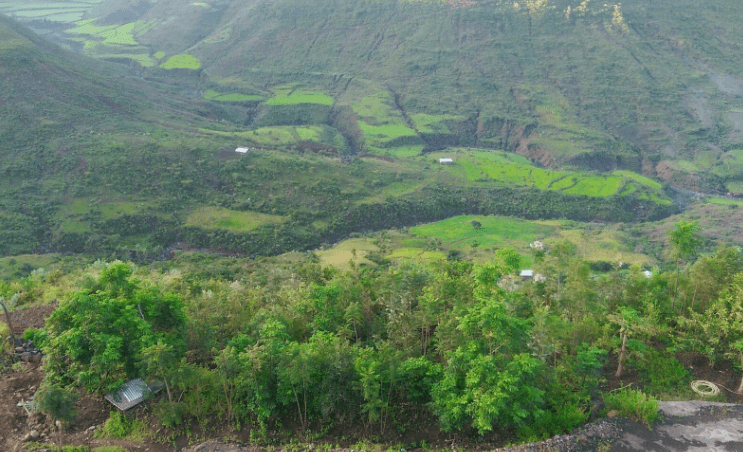
Multinational companies are leasing enormous swaths of land across Africa, according to to a recent study. The result could be greater competition for water as increased shortages already impact local communities. This could cause greater risk of increased conflicts between citizens, wildlife and the local environment as the world struggles to feed a planet that could become home to 9 billion people by 2050.
According to researchers at Lund University in Sweden, foreign companies have already leased about 3 percent of land in Africa, about the same size as the U.S. states of Texas, New Mexico and Oklahoma combined. Most of these leases run for a period of anywhere from 33 to 99 years, and the contracts generally lack any clear rules or limits on local water consumption. Critics have long said such leases amount to a “global land grab,” in which foreign companies and countries profit while local citizens are displaced and lose their way of life.
In order to estimate the impact a shift from the localized use of land to a system that tilts toward the production of lucrative cash crops, Lund University researchers developed models that gauge how much water is needed for various production systems. By comparing what areas can rely on local rain water versus land that would be reliant on irrigation, they pinpointed areas where an increased competition for water could cause water-related tensions between companies, communities and ecosystems.
Increased demand for food will exacerbate this problem in the coming years. According to the Brookings Institution, approximately 60 percent of the world’s arable land is in sub-Saharan Africa. The continent has become the last frontier for many of the world’s largest companies as they seek new markets for their products – and a base from which to source coveted raw materials such as timber and commodity crops like grains and palm oil. Add the interest in the region by countries such as China and the Gulf states in the Middle East, and Africa risks becoming a focal point of human rights violations as local communities discover they have less access to water -- or are even frozen out of lands on which they lived for generations.
Some companies say they are already cognizant of these challenges and are balancing the needs of local communities as they lease more land in Africa or contract with local growers. PepsiCo, for example, has invested in chickpea cultivation across Ethiopia -- which can provide a steady supply of this coveted foodstuff while training farmers, ensuring sustainable development and providing a bulwark against the risk of famine. Other food and beverage companies, including Unilever and Coca-Cola, say they have embarked on similar plans across the continent that is home to 1.2 billion people.
But the evidence suggests tensions are already brewing. Several foreign-owned flower farms were recently attacked in Ethiopia over allegations of human rights violations. And a recent investigation by the United Kingdom daily newspaper Independent suggests the demand for farmed fish is taking food out of the mouths of West Africans in order to produce animal feed for overseas companies. The Economist, however, suggests the real culprits of any African “land grab” are more affluent citizens from large cities who invest in the countryside. Nevertheless, the political sensitivities behoove foreign firms to mind the optics as they ramp up investment across Africa.
Both foreign governments and countries need to be transparent about their operations in a region where per-capita income hovers around $750. And in these societies that lack processes taken for granted in developed countries, like land titles and standards such as Free, Prior and Informed Consent (FPIC), must be defended and respected by governments and companies alike.
Image credit: Leon Kaye

Leon Kaye has written for 3p since 2010 and become executive editor in 2018. His previous work includes writing for the Guardian as well as other online and print publications. In addition, he's worked in sales executive roles within technology and financial research companies, as well as for a public relations firm, for which he consulted with one of the globe’s leading sustainability initiatives. Currently living in Central California, he’s traveled to 70-plus countries and has lived and worked in South Korea, the United Arab Emirates and Uruguay.
Leon’s an alum of Fresno State, the University of Maryland, Baltimore County and the University of Southern California's Marshall Business School. He enjoys traveling abroad as well as exploring California’s Central Coast and the Sierra Nevadas.














